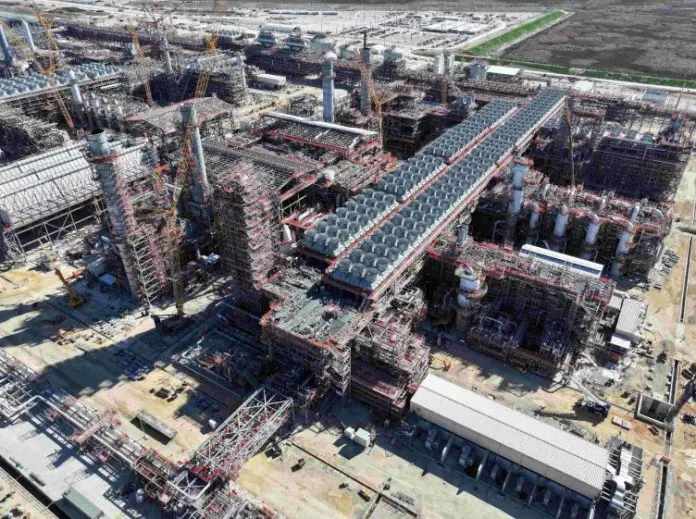This story requires a subscription
This includes a single user license.
According to a FERC filing dated April 28, the regulator granted Golden Pass LNG permission to commission the LNG systems.
FERC approved Golden Pass LNG’s request to commission the boil-off gas compression system, LNG storage, liquefaction system, LNG pumps, and the end flash gas compression system.
The regulator noted that this approval does not grant Golden Pass the authority to commission or introduce hazardous fluids into other project facilities at the LNG terminal.
In March, Golden Pass LNG secured an extension from the US DOE.
DOE approved the Golden Pass request from August last year, extending the deadline for commencement of commercial LNG export operations from the Golden Pass LNG terminal by 18 months to March 31, 2027.
Golden Pass is set to begin exporting as early as later this year, and once operational, will become the ninth large-scale export terminal operating in the US, DOE noted in the approval.
Golden Pass LNG launch
State-owned QatarEnergy owns a 70 percent stake in the Golden Pass project with a capacity of more than 18 mtpa and will offtake 70 percent of the capacity, while US energy firm ExxonMobil has a 30 percent share.
A joint venture of Chiyoda, McDermott, and Zachry won the EPC contract to build the three Golden Pass trains worth about $10 billion next to the existing LNG import terminal in the vicinity of Sabine Pass, Texas.
However, Zachry Holdings said in May 2024 that it had filed for bankruptcy, initiating a structured exit from the Golden Pass LNG export project due to “financial challenges” related to the facility’s construction.
In November 2024, Japan’s Chiyoda and US-based CB&I reached a deal with Golden Pass LNG to complete the construction of the first liquefaction following the exit of Zachry.
During the same month, ExxonMobil CEO Darren Woods said the JV expects to see first LNG out of the first train “in the back end of 2025, potentially slipping over into the new year.”
“And then, of course, after that, we anticipate about six months separation between the trains coming on,” he said.

